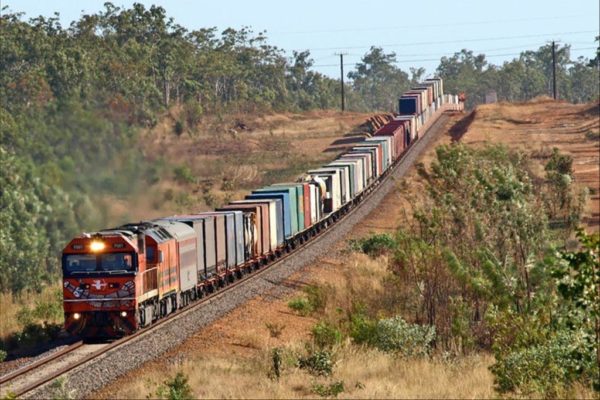Following the arrival of new rail wagons originally planned to strengthen Lagos-Ibadan railway transit, the Minister of Transportation, Rotimi Amaechi, has ordered deployment of 18 wagons to move containers and tankers to Kaduna Dry Ports.
With the development which started on Tuesday, containers and oil tankers had start moving goods from Lagos ports through the Railway wagons to the dry port in Kaduna in the North.
The minister said government is happy that with the new development, the illegal parking of articulated vehicles within Apapa axis which had been the major cause of traffic gridlocks will begin to disappear.
Also speaking in an interview, the Managing Director, Nigeria Railway Corporation (NRC), Engineer Fidet Okhiria, said “The newly acquired 18 wagons are to boost the inland container dry port business by moving cargos from Apapa seaport to dry ports in Kaduna and other states”.
“The NRC has the capacity to evacuate 20 footer and 40 footer containers from Apapa port to, Ijoko and Abeokuta, both in Ogun state and Omi-Adio railway depots, in Oyo state, for onward transfer by parked trucks.
Continuing, Okhiria added that “The trucks would evacuate the containers by road to their various destinations which most often is either the inland dry port in Kaduna or Kano”.
A lot of maritime stakeholders, who barred their minds on the development in Apapa yesterday, welcomed the development and called for more wagons.
However, a high ranking Clearing Agent, who pleaded anonymity said “While we welcome the movement of cargos via the railway, the Apapa gridlocks may not disappear fast as thought unless the Truck Loading Bay (TLB) that had suffered construction politics in the last five years is completed and opened for use”.
“For us in port business, until the TLB is in use and other terminals are encouraged to build their own TLBs, whether the rail work or not, trucks will still continue to hang on highways because the main challenge is where trucks coming to load at the ports will stay while waiting for their turn to enter and lift their cargoes.









